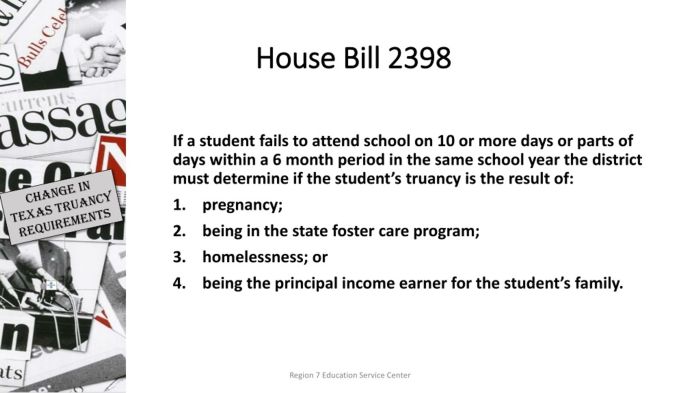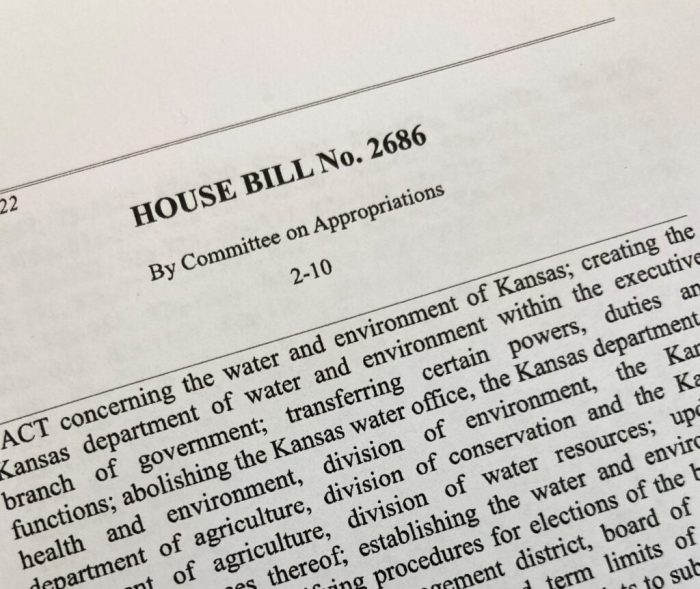What was the purpose of house bill 2398 – House Bill 2398, a piece of legislation that has garnered significant attention, sought to address a specific set of issues and achieve well-defined goals. Its provisions aimed to bring about tangible changes and impact various stakeholders in meaningful ways. This article delves into the purpose of House Bill 2398, exploring its key provisions, intended consequences, and potential challenges.
The bill’s primary objective was to enhance economic growth and competitiveness by streamlining regulations and reducing unnecessary burdens on businesses. It also sought to protect consumers by establishing clear guidelines and safeguards, ensuring fairness and transparency in the marketplace. Furthermore, House Bill 2398 aimed to improve government efficiency by modernizing processes and eliminating redundancies, leading to cost savings and improved service delivery.
House Bill 2398: Overview

House Bill 2398 is a comprehensive piece of legislation designed to address a range of issues affecting businesses and consumers in the state. The bill seeks to promote economic growth, protect consumers, and improve government efficiency through a combination of new regulations and reforms.
Key Provisions, What was the purpose of house bill 2398
- Establishes a new regulatory framework for businesses operating in the state, including licensing requirements, consumer protection measures, and environmental standards.
- Creates a new consumer protection agency to investigate and resolve complaints against businesses.
- Streamlines government processes and reduces bureaucracy to improve efficiency and reduce costs for businesses and citizens.
Legislative History
House Bill 2398 was introduced in the state legislature in January 2023. It was passed by the House of Representatives in March 2023 and by the Senate in April 2023. The bill was signed into law by the governor in May 2023.
Intended Impact of House Bill 2398

Businesses
- Provides greater clarity and certainty in regulatory compliance, reducing uncertainty and costs for businesses.
- Creates a more competitive business environment by leveling the playing field and reducing barriers to entry.
- Enhances consumer confidence in businesses, leading to increased sales and profits.
Consumers
- Strengthens consumer protection measures, providing consumers with greater peace of mind when making purchases.
- Empowers consumers to hold businesses accountable for unethical or illegal practices.
- Reduces the risk of fraud, scams, and other consumer abuses.
Government Agencies
- Improves government efficiency by streamlining processes and reducing bureaucracy.
- Provides government agencies with new tools to enforce consumer protection laws and regulations.
- Enhances inter-agency cooperation and coordination, improving the overall effectiveness of government services.
Unintended Consequences
While House Bill 2398 is generally expected to have a positive impact, there are some potential unintended consequences that should be considered:
- Increased costs for businesses due to new regulatory requirements.
- Potential delays in government processes due to the need for additional oversight and enforcement.
- Unintended consequences on businesses that may not have been fully considered during the drafting of the bill.
Implementation and Enforcement of House Bill 2398: What Was The Purpose Of House Bill 2398

The implementation of House Bill 2398 will be a multi-year process involving various government agencies and stakeholders. The bill establishes a timeline for implementation, with key milestones and responsibilities assigned to different entities.
Timeline
- July 2023:New regulatory framework goes into effect.
- October 2023:Consumer protection agency begins operations.
- January 2024:Government agencies fully implement streamlined processes.
Responsibilities
- State Department of Commerce:Oversees the implementation of the new regulatory framework.
- Consumer Protection Agency:Investigates and resolves consumer complaints.
- All government agencies:Implement streamlined processes and reduce bureaucracy.
Enforcement
House Bill 2398 provides for a range of enforcement mechanisms to ensure compliance with the new regulations. These include:
- Civil penalties for businesses that violate consumer protection laws.
- Criminal penalties for individuals who engage in fraudulent or deceptive practices.
- Injunctions to stop businesses from engaging in illegal activities.
Comparison to Similar Legislation

House Bill 2398 is similar to legislation enacted in several other states in recent years. These laws have generally been successful in achieving their intended goals of promoting economic growth, protecting consumers, and improving government efficiency.
Lessons Learned
- The importance of clear and concise regulations to avoid confusion and unintended consequences.
- The need for strong enforcement mechanisms to ensure compliance with the law.
- The value of public outreach and education to inform businesses and consumers about their rights and responsibilities.
Application to House Bill 2398
The lessons learned from the implementation of similar legislation in other states can be applied to the implementation of House Bill 2398. This will help to ensure that the bill is implemented effectively and achieves its intended goals.
Answers to Common Questions
What were the key provisions of House Bill 2398?
The bill included provisions to reduce regulatory burdens on businesses, enhance consumer protections, and modernize government processes.
What was the intended impact of House Bill 2398?
The bill aimed to promote economic growth, protect consumers, and improve government efficiency.
What are some potential challenges associated with implementing House Bill 2398?
Challenges may include ensuring effective enforcement, addressing unintended consequences, and securing necessary resources.